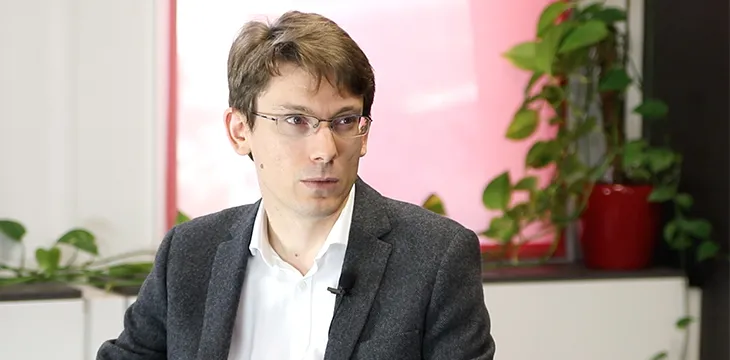|
Getting your Trinity Audio player ready...
|
Joannes Vermorel, founder of quantitative supply chain Lokad, talks about how the Terab project’s main goal is to make the word UTXO challenge so boring that people wouldn’t even describe it as a challenge anymore.
Quantitative supply chain Lokad has taken one of the most important scaling challenges for Bitcoin—managing unspent transaction outputs (UTXO) dataset.
UTXOs are database entries that say who owns what in a Bitcoin network. From a user perspective, all we see are nice, user-friendly apps that displays how many Bitcoins we have and also lets us send crypto to other people. Under the hood, however, is a different story.
Lokad founder Joannes Vermorel explained, “What is happening is that when you are sending money through the bitcoin network what is happening is that there is change in the consensus on who owns what. You see, money is not, there is nothing that truly moves. What is actually changing is the consensus on who has how many Bitcoins.”
In a blog post, titled “Terabyte blocks for Bitcoin Cash,” Vermorel explained how 1TB blocks are viable on the BCH chain. A single terabyte block, added every 10 minutes, can contain about 4 billion transactions, and provide capacity of 7 million transactions per second. However, with such a massively scaled BCH network, developers will need to figure out how to optimize the UTXO database maintained by nodes to prevent BCH double spending.
“The challenge is not to manage the fact that you have many, many Bitcoins, it’s to make sure that you can actually update the database, the consensus on who owns what sufficiently [and] rapidly to accommodate many people who are transacting at the same time,” Vermorel said, explaining that UTXO is different from blockchain in the sense that the blockchain has the complete history of transactions, whereas the UTXO is just the instate state of who owns.”
He noted, “The idea is that [for] all the people to know if a bitcoin transaction is valid, you have a certain set of requirements and one of them is that when you’re sending money, you have this money, thus you need to have an up to date version of this dataset to be able to validate if an incoming transaction that is being propagated across the network is valid or not, which begs the question: can you keep up? Do you have a system that can keep up with a large number of transactions? And that’s where you have a scalability challenge because if there is a lot of people who are transacting on the bitcoin network, there can be a lot of transactions.”
This paved the way for the Terab project, an open source initiative backed by blockchain technology research and development specialist nChain Group and CoinGeek.com owner and Antiguan-based entrepreneur Calvin Ayre, who has pledged up to €3.6 million in funding. Vermorel said, “They are funding Terab because it’s one of the components that can help Bitcoin to scale to, I would say, mankind-level of adoption.”
To learn more about scaling the UTXO dataset to 1GB blocks, catch Joannes Vermorel at the CoinGeek Week Conference in London on November 28-30 (with the special, invitation-only Miners Day event on November 27). Secure your seats today to the CoinGeek Week—it’s also the perfect opportunity to hear from thought leaders about the implications of the world’s first Bitcoin Hash War fought according to Nakamoto Consensus.

 07-02-2025
07-02-2025 





